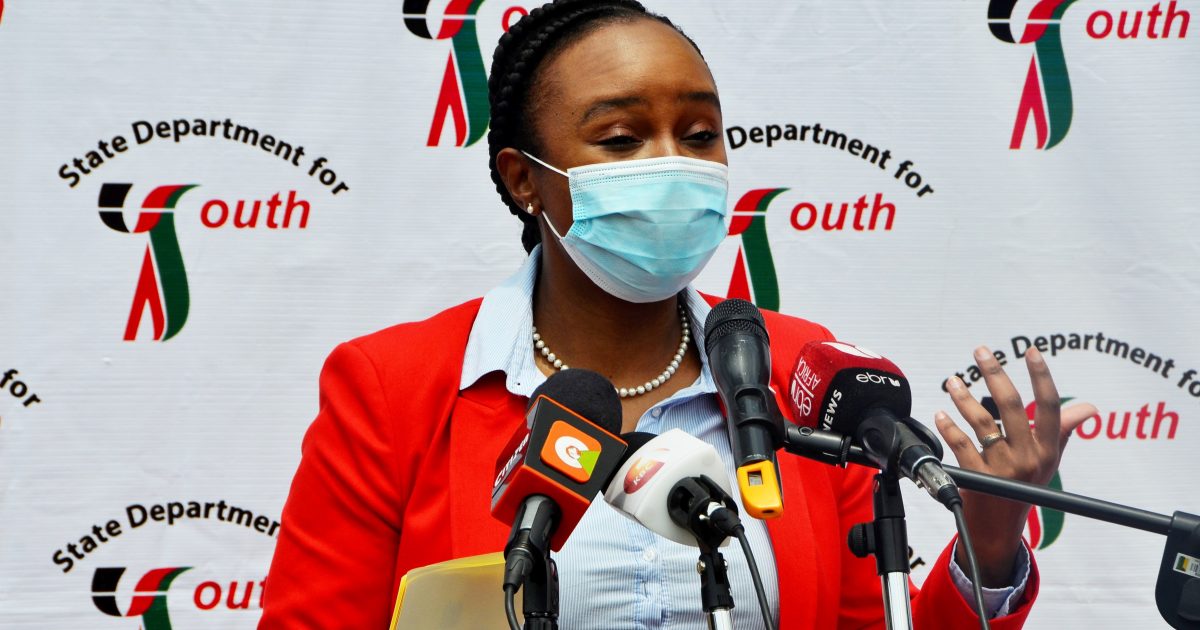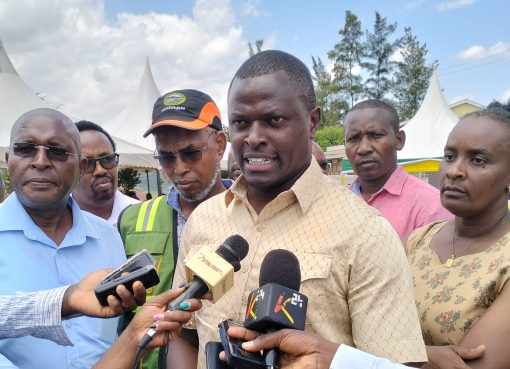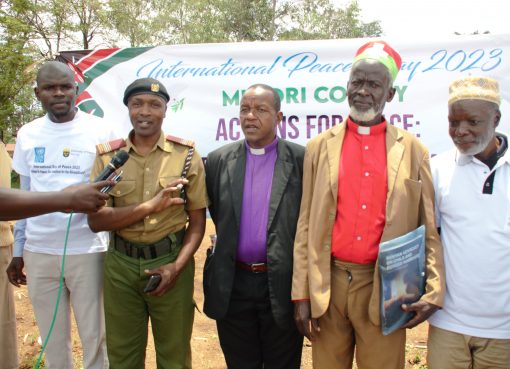679 people have today tested positive for COVID 19 after 6,590 samples were tested in the last 24 hours.
This now brings the total number of positive cases in the country to 28, 104 and cumulative tests to 369,091.
From today’s cases 658 are Kenyans , while 21 are foreigners. 400 are males and 279 are females while the youngest case is a one month old infant while the oldest is 87yeras.
Giving the COVID 19 status update on Wednesday, the Health Chief Administrative Secretary (CAS), Dr. Mercy Mwangangi said Nairobi is still leading with 349 cases followed by Kiambu 69, Kajiado 35 and Machakos 25.
Others are Nyeri 23, Garissa 18, Mombasa 16, kericho 14, Uasin gishu 13, Nyandarua 13, Tharka Nithi
11, Laikipia 9, nakuru and Migori 8 each , Kisumu 7 while Nandi and busia 6 each. Meru 5,Kirinyaga, Makueni, isiolo, tana river each recorded 4 cases, while Transnzoia, homabay and embu had 3 cases.
Kitui , Vihiga , Narok and Kilfi had 2 cases each while Kakamega, baringo, Samburu, siaya, bomet, Taita Taveta and Nyamira recorded 1 case each.
“Today we are however delighted to inform you that 743 patients have recovered from the disease with 685 of recoveries from home based care program while 58 have been discharged from the hospitals bringing the total number of recoveries to 14,610”, she said.
Unfortunately, the CAs said that the country has lost 18 patients to the disease bringing the total fatality to 456 and out of today’s cases, one health care worker form the Kenya Medical Research Institute (KEMRI) Director of Corporate Affairs has succumbed to the disease.
Dr. Mwangangi today said that since the pandemic struck in the country, the government has been partnering with many stakeholders and development partners who have donated various equipment to support in the pandemic.
“The Kenya partnership and coordination framework premised on the country’s constitution and achievement Universal health c9verage requires mobilization of substantial resources and efforts by all in enhancing quality health and efficiency.
On COVID 19, Dr. Mwangangi said place an even greater burden on the government and hence the need to double efforts In mobilization of resources both local and internally to fight the pandemic.
She thanked WHO for donations of COVID equipment’s today, saying they will be channeled to various health facilities across the country including those in counties to boost their capacity during this pandemic.
“For those who have partnered with the ministry and even their donations, including the WHO today, I want to extend gratitude and promise accountability to ensure all the donations are deployed as intended “, she said
Meanwhile , World Health Organization (WHO) donated COVID 19 equipment worth Ksh. 32.1 million to strengthen the COVID response.
Speaking during the handing over, the WHO Country representative, Dr. Rudi Eggers said lack of adequate testing leads to under reporting of COVID 19 cases and prevents understanding the full picture of the pandemic in Africa.
To meet the demand on testing kits across Africa, WHO and other UN agencies have secured n critical volumes of testing kits and shipped 1.8 million testing kits to 47 African countries in Africa of the past month.
He said that the government has tough choices to make to run the COVID 19 epidemic around and to enable the reduction of cases and deaths even while allowing the economy to recover.
“These two go hand in hand , the economy can recover fully only if and when we are able to contain the disease and therefore leaders at all levels need to step up and work intensely with communities to bring the disease under control” Dr. Eggers said
He observed the rising numbers of COVID cases and scaling up of community transmissions in Kenya and also a general lax of individual behaviors who are not complying with the laid down measures.
The donation today consisted of Personal Protective equipment that include 250,000 surgical masks, 13,900 N95 respirator masks, more than 5,000 face shields and goggles and more than 4,200 isolation gown.
Others are 10 units of oxygen concentrators and 1,500 lab reagents and 39,500 lab swab kits that will assist health workers across the country as they deliver services and also boost the government’s efforts in improving testing in various laboratories.
By Wangari Ndirangu





